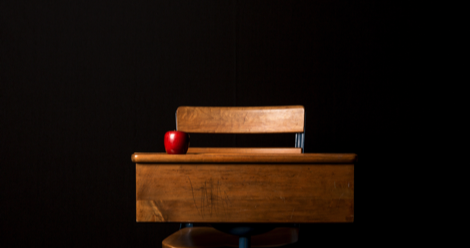
On Being Forced to Read
A common complaint I hear about reading from my students, who are mostly freshman in college, is that being forced to read in school turned them off from reading altogether. Many say that they used to like reading when it was fun and for their own pleasure, but once their teachers started assigning readings and books and papers they got turned off from doing any reading at all. Some wouldn’t even do those assigned readings out of spite, leading them to not reading anything extra either.
This situation makes a lot of sense. It’s much more fun to read when you’re picking all of the material. I’m not sure that I felt that exact way when I was their age, however. I always liked reading but was also distracted enough during my high school years to always do the bare minimum. I would read all the books that were assigned for class, but that was it. It took some time, even in college, for me to start reading for pleasure again because it was taking time for me to start caring about stuff again.
There was another big shift in my reading habits when I got to graduate school, partially because there was a lot more to required reading. I did my graduate degree in literature immediately after undergrad, and I’m happy I did. I definitely needed a couple more years of studying to really feel like I was actually a part of the field. Grad school helped me grow so much as a writer and thinker. The time I spent getting my graduate degree also changed the way I read. There were days I complained about some of the plays or books (ahem, Vanity Fair—sorry, Dr. Farina), but one of the skills I gained was figuring out what books I really liked. In a creative writing class I took during my first year, we were assigned a certain post-apocalyptic novel that just wasn’t for me. I tried reading it and couldn’t finish it. So I didn’t. I read enough to have something negative to say about it in class and gained the confidence to just stop reading books that I don’t feel connected to.
Another reading skill I got from being forced to read certain stuff was learning how to manage my time so that I could read the books I wanted in addition to all of the required texts. It is very easy to get so wrapped up in specialized texts in your designated subject and lose sight of anything contemporary. I found myself feeling very conflicted about sticking to one time period of literature, which is one of the reasons I wanted to hold off on the idea of a PhD. I loved contemporary American novels, but I also loved Shakespearean drama. I could mix the two together, but in order to enjoy the books I loved, I had to start reading faster and more seriously. This balance is something I still do now as an instructor. I spend a lot of time grading bad writing and choosing good texts for them to read, but I also read books of my choosing every day. It’s something I’m not willing to give up.
My experiences don’t reflect a rebellious or bitter spirit that I hear a lot from young adults, but in my own classes I try to introduce them to great contemporary writers, like Zadie Smith, bell hooks, and Hilton Als, so that they can see what people are doing right now. I also often ask them what they think of the stuff we read for class because I want them to see that their opinions are valid. I found value in being forced to read, so the least I can do is make it as painless as possible for them.











